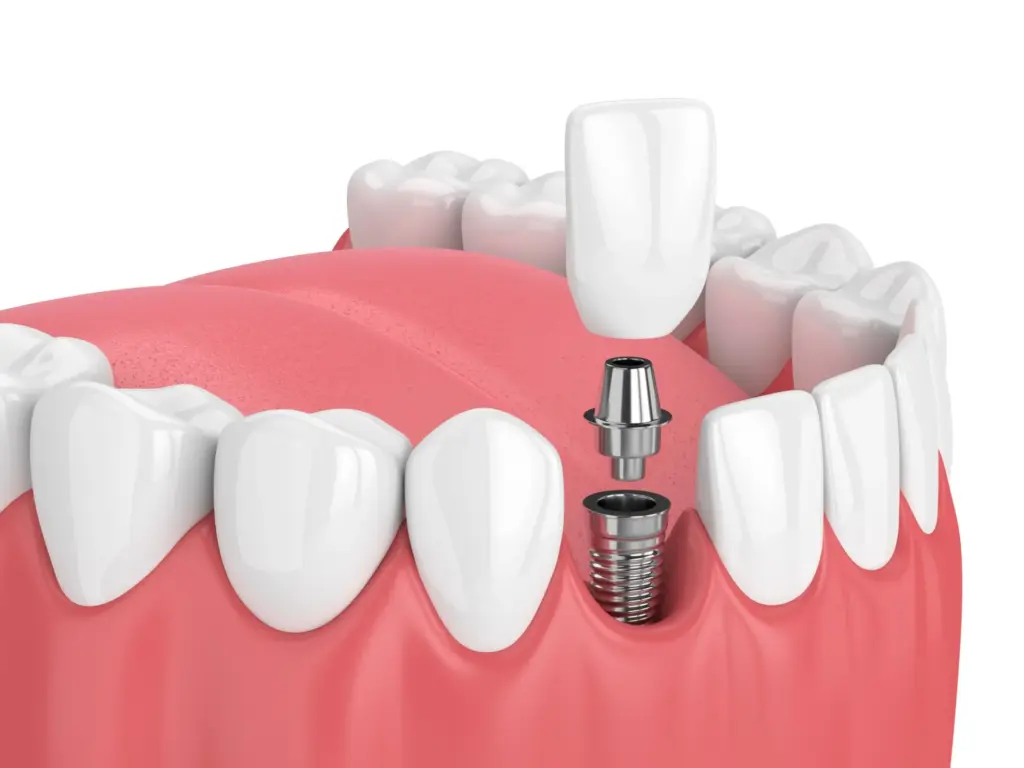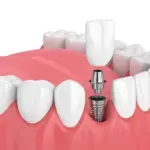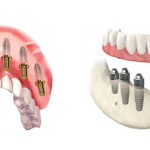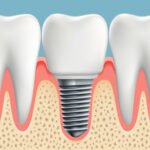Pain After Implant Surgery: What to Expect with Safedent Dental Clinic and Dr. Yesim Ramos
For many individuals experiencing tooth loss, dental implant treatment offers a permanent and effective solution, both aesthetically and functionally. However, one of the most important questions that comes to mind when considering this treatment is: “Is there pain after implant surgery?” At Safedent Dental Clinic, our team, led by experienced dentist Dr. Yesim Ramos, places special emphasis on pain management to ensure our patients have the most comfortable treatment experience possible. In this article, we will thoroughly discuss how pain after implant surgery progresses, how long it lasts, and what precautions should be taken after implant surgery.
How Common is Pain After Implant Surgery?
Experiencing pain after implant surgery is quite common and expected among patients who undergo dental implant surgery. The procedures performed on the gums and jawbone during implant surgery can naturally cause temporary pain and sensitivity. However, the intensity of this pain can vary greatly from person to person. Some patients may experience minimal discomfort, while others might feel more noticeable pain.
Pain typically begins immediately after the surgery and can be most intense within the first 24 to 48 hours. This is a natural response of the body to surgical intervention. Afterward, the intensity of the pain gradually decreases and can usually be brought under control within the first week. At Safedent Dental Clinic, Dr. Yesim Ramos and her team prescribe effective pain relievers and provide detailed pain management advice to minimize post-operative pain and ensure patient comfort.
How Many Days Does Pain After Implant Surgery Last?
The question, “How many days does pain after implant surgery last?” is one of the most frequently asked questions by anyone considering dental implant treatment. Generally, the pain felt after dental implant surgery is at its highest level for the first few days, and then gradually subsides. On average, the pain period can range from 3 to 7 days.
The duration of pain depends on various factors:
Complexity of the Surgery: The duration and intensity of pain can differ between a simple single implant placement and more complex surgeries involving multiple implants or additional procedures like bone grafting.
Patient’s Individual Healing Capacity: Each individual’s pain threshold and the body’s healing rate vary. Younger and healthier individuals generally tend to heal faster.
Implant Placement Area: Factors such as jawbone density and proximity to nerves can affect the level of pain.
Post-Operative Care: Meticulous adherence to the dentist’s recommendations after surgery helps bring pain under control more quickly and accelerates the healing process.
At Safedent Dental Clinic, Dr. Yesim Ramos and her team explain the expected healing process and pain management strategies specific to each patient’s situation in detail.
What Should Be Considered After Implant Surgery?
What needs to be considered after implant surgery is critically important for a successful, comfortable, and complication-free process. Adhering to these recommendations not only minimizes pain after implant surgery but also supports the healthy integration (osseointegration) of the implant with the bone.
Pain and Swelling Management:
You should regularly use the pain relievers prescribed by your dentist at the specified dose. Taking pain medication before the pain starts can prevent it from intensifying.
Applying cold compresses intermittently (15 minutes on, 15 minutes off) to the surgical area externally within the first 24-48 hours after surgery can significantly reduce swelling. Swelling usually peaks within the first 2-3 days and then subsides.
Nutrition and Fluid Intake:
For the first few days after surgery, only soft and cold/lukewarm foods should be consumed. Hard, hot, spicy, or acidic foods and drinks should be strictly avoided to support the healing of the implant area.
Chewing should be done on the side opposite to the surgical area.
Avoid using straws, as the sucking motion can cause bleeding.
Drinking plenty of water supports the body’s healing process.
Oral Hygiene:
Keeping the implant area clean and hygienic is the most important way to reduce the risk of infection.
Starting the day after surgery, you should brush your teeth gently with a soft toothbrush as recommended by your dentist. Avoid applying direct pressure to the surgical area.
Using antibacterial mouthwashes prescribed by your dentist helps reduce the bacterial load in the mouth.
Tobacco and Alcohol Use:
Smoking and alcohol consumption can severely negatively affect the healing process. Tobacco use slows healing, increases the risk of infection, and reduces the success of implant integration with the bone. Therefore, it is strongly recommended to avoid these substances after surgery.
Physical Activity:
For the first few days after surgery, heavy physical activities, exercise, and strenuous work should be avoided. Resting helps the body direct healing energy to the surgical site.
Dentist Check-ups:
Meticulously adhering to regular follow-up appointments scheduled by Dr. Yesim Ramos at Safedent Dental Clinic is vital for monitoring the healing process and detecting any potential complications early. Your dentist will check if the implant is properly placed and if there are any issues.
Complications After Implant Surgery
As with any surgical procedure, some complications can occur after dental implant surgery. These are generally temporary and manageable issues such as pain after implant surgery, swelling, and bruising. However, in some cases, more serious complications may arise:
Infection: The formation of an infection in the implant area can lead to increased pain, swelling, and redness, and even fever and general malaise. In such cases, Safedent Dental Clinic should be contacted immediately, and medical advice should be sought.
Healing Problems (Osseointegration Failure): Rarely, the implant may not integrate sufficiently with the jawbone. This can lead to the implant becoming loose or falling out.
Dr. Yesim Ramos and her team use detailed pre-evaluations and correct surgical techniques to minimize this risk.
Nerve Damage: In very rare cases, especially when placing implants in the lower jaw, nearby nerves may be damaged. This can cause temporary or permanent numbness, tingling, or pain in the lip, tongue, or jaw area.
Sinus Perforation (in the Upper Jaw): When placing implants in the upper jaw, the implant may enter the sinus cavity. This can lead to sinus infections and may require additional treatment.
The risk of such serious complications is minimal in a clinic with an experienced dentist and modern technology (e.g., Safedent Dental Clinic).
Conclusion: Pain After Implant Surgery is a Manageable Process
To the question, “Is there pain after implant surgery?“, we can generally answer “yes, a certain level of pain and discomfort may be experienced.” However, this pain can be easily controlled with appropriate pain management strategies, meticulous adherence to the dentist’s recommendations, and proper care. To the question, “How many days does pain after implant surgery last?“, we can generally respond with a period of 3 to 7 days; during this time, the pain gradually subsides.
Dental implant is a modern treatment method that offers healthy, aesthetic, and long-lasting solutions for missing teeth. What needs to be considered after surgery can accelerate the healing process and significantly reduce the risk of possible complications. At Safedent Dental Clinic, with our expert team led by Dr. Yesim Ramos, we guide you through every stage of implant treatment, ensuring a comfortable experience and successful results. By following your dentist’s advice and undergoing a careful healing process, you can achieve the best results from implant treatment and have a healthy, confident smile.





